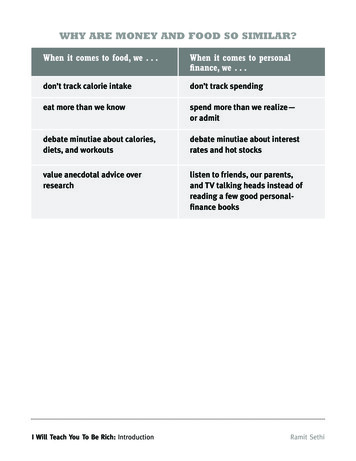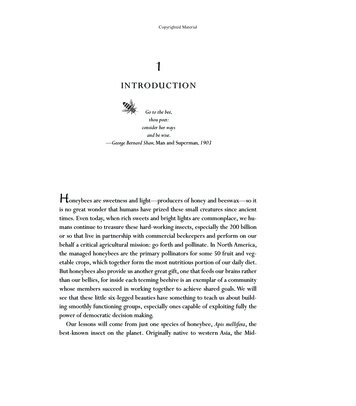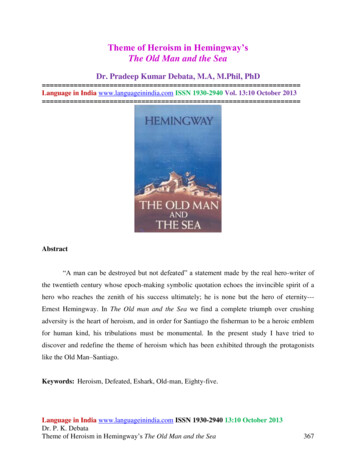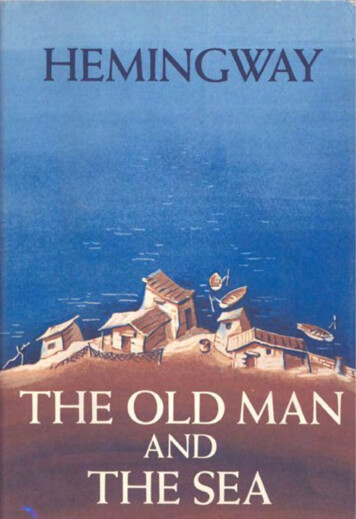
Transcription
MAN AND SUPERMANA Comedy and a PhilosophybyGEORGE BERNARD SHAWA Penn State Electronic Classics Series Publication
Man and Superman: A Comedy and a Philosophy by George Bernard Shaw is a publication of thePennsylvania State University. This Portable Document file is furnished free and without anycharge of any kind. Any person using this document file, for any purpose, and in any way doesso at his or her own risk. Neither the Pennsylvania State University nor Jim Manis, FacultyEditor, nor anyone associated with the Pennsylvania State University assumes any responsibilityfor the material contained within the document or for the file as an electronic transmission, inany way.Man and Superman: A Comedy and a Philosophy by George Bernard Shaw, the Pennsylvania StateUniversity, Electronic Classics Series, Jim Manis, Faculty Editor, Hazleton, PA 18202-1291 is aPortable Document File produced as part of an ongoing student publication project to bringclassical works of literature, in English, to free and easy access of those wishing to make use ofthem.Cover Design: Jim Manis; Napoleon on his Imperial Throne – 1806: Ingres, Jean-Auguste-Dominique (1780-1867).Copyright 2003 The Pennsylvania State UniversityThe Pennsylvania State University is an equal opportunity university.
Man & Supermanplay, because qui facit per alium facit per se. Its profits, likeits labor, belong to me: its morals, its manners, its philosophy, its influence on the young, are for you to justify. Youwere of mature age when you made the suggestion; and youknew your man. It is hardly fifteen years since, as twin pioneers of the New Journalism of that time, we two, cradled inthe same new sheets, made an epoch in the criticism of thetheatre and the opera house by making it a pretext for a propaganda of our own views of life. So you cannot plead igno-MAN AND SUPERMANA COMEDYAND A PHILOSOPHYbyrance of the character of the force you set in motion. Yonmeant me to epater le bourgeois; and if he protests, I herebyrefer him to you as the accountable party.I warn you that if you attempt to repudiate your responsibility, I shall suspect you of finding the play too decorous foryour taste. The fifteen years have made me older and graver.In you I can detect no such becoming change. Your levitiesand audacities are like the loves and comforts prayed for byDesdemona: they increase, even as your days do grow. Nomere pioneering journal dares meddle with them now: thestately Times itself is alone sufficiently above suspicion toact as your chaperone; and even the Times must sometimesGEORGE BERNARDSHAWEPISTLE DEDICATORY TO ARTHURBINGHAM WALKLEYMy dear Walkley:You once asked me why I did not write a Don Juan play. Thelevity with which you assumed this frightful responsibilityhas probably by this time enabled you to forget it; but theday of reckoning has arrived: here is your play! I say your3
GB Shawthank its stars that new plays are not produced every day,since after each such event its gravity is compromised, itsplatitude turned to epigram, its portentousness to wit, itspropriety to elegance, and even its decorum into naughtiness by criticisms which the traditions of the paper do notallow you to sign at the end, but which you take care to signwith the most extravagant flourishes between the lines. I amnot sure that this is not a portent of Revolution. In eighteenth century France the end was at hand when men boughtwith the temperament of a schoolmaster and the pursuits ofa vestryman. No doubt that literary knack of mine whichhappens to amuse the British public distracts attention frommy character; but the character is there none the less, solidas bricks. I have a conscience; and conscience is always anxiously explanatory. You, on the contrary, feel that a man whodiscusses his conscience is much like a woman who discussesher modesty. The only moral force you condescend to parade is the force of your wit: the only demand you make inthe Encyclopedia and found Diderot there. When I buy theTimes and find you there, my prophetic ear catches a rattleof twentieth century tumbrils.However, that is not my present anxiety. The question is,will you not be disappointed with a Don Juan play in whichnot one of that hero’s mille e tre adventures is brought uponthe stage? To propitiate you, let me explain myself. You willretort that I never do anything else: it is your favorite jibe atme that what I call drama is nothing but explanation. Butyou must not expect me to adopt your inexplicable, fantastic, petulant, fastidious ways: you must take me as I am, areasonable, patient, consistent, apologetic, laborious person,public is the demand of your artistic temperament for symmetry, elegance, style, grace, refinement, and the cleanlinesswhich comes next to godliness if not before it. But my conscience is the genuine pulpit article: it annoys me to see peoplecomfortable when they ought to be uncomfortable; and Iinsist on making them think in order to bring them to conviction of sin. If you don’t like my preaching you must lumpit. I really cannot help it.In the preface to my Plays for Puritans I explained thepredicament of our contemporary English drama, forced todeal almost exclusively with cases of sexual attraction, andyet forbidden to exhibit the incidents of that attraction or4
Man & Supermaneven to discuss its nature. Your suggestion that I should writea Don Juan play was virtually a challenge to me to treat thissubject myself dramatically. The challenge was difficultenough to be worth accepting, because, when you come tothink of it, though we have plenty of dramas with heroesand heroines who are in love and must accordingly marry orperish at the end of the play, or about people whose relationswith one another have been complicated by the marriagelaws, not to mention the looser sort of plays which trade onthe tradition that illicit love affairs are at once vicious anddelightful, we have no modern English plays in which thenatural attraction of the sexes for one another is made themainspring of the action. That is why we insist on beauty inour performers, differing herein from the countries our friendWilliam Archer holds up as examples of seriousness to ourchildish theatres. There the Juliets and Isoldes, the Romeosand Tristans, might be our mothers and fathers. Not so theEnglish actress. The heroine she impersonates is not allowedto discuss the elemental relations of men and women: all herromantic twaddle about novelet-made love, all her purelylegal dilemmas as to whether she was married or “betrayed,”quite miss our hearts and worry our minds. To console ourselves we must just look at her. We do so; and her beautyfeeds our starving emotions. Sometimes we grumbleungallantly at the lady because she does not act as well as shelooks. But in a drama which, with all its preoccupation withsex, is really void of sexual interest, good looks are more desired than histrionic skill.Let me press this point on you, since you are too clever toraise the fool’s cry of paradox whenever I take hold of a stickby the right instead of the wrong end. Why are our occasional attempts to deal with the sex problem on the stage sorepulsive and dreary that even those who are most determined that sex questions shall be held open and their discussion kept free, cannot pretend to relish these joyless attemptsat social sanitation? Is it not because at bottom they are utterly sexless? What is the usual formula for such plays? Awoman has, on some past occasion, been brought into conflict with the law which regulates the relations of the sexes. Aman, by falling in love with her, or marrying her, is broughtinto conflict with the social convention which discountenances the woman. Now the conflicts of individuals with5
GB Shawlaw and convention can be dramatized like all other humanconflicts; but they are purely judicial; and the fact that weare much more curious about the suppressed relations between the man and the woman than about the relations between both and our courts of law and private juries of matrons, produces that sensation of evasion, of dissatisfaction,of fundamental irrelevance, of shallowness, of useless disagreeableness, of total failure to edify and partial failure tointerest, which is as familiar to you in the theatres as it wasyour dislike of vulgarity is pushed to the length of a defect(universality of character is impossible without a share ofvulgarity); and even if you could acquire the taste, you wouldfind yourself overfed from ordinary sources without troubling me. So I took it that you demanded a Don Juan in thephilosophic sense.Philosophically, Don Juan is a man who, though giftedenough to be exceptionally capable of distinguishing betweengood and evil, follows his own instincts without regard toto me when I, too, frequented those uncomfortable buildings, and found our popular playwrights in the mind to (asthey thought) emulate Ibsen.I take it that when you asked me for a Don Juan play youdid not want that sort of thing. Nobody does: the successessuch plays sometimes obtain are due to the incidental conventional melodrama with which the experienced popularauthor instinctively saves himself from failure. But what didyou want? Owing to your unfortunate habit—you now, Ihope, feel its inconvenience—of not explaining yourself, Ihave had to discover this for myself. First, then, I have hadto ask myself, what is a Don Juan? Vulgarly, a libertine. Butthe common statute, or canon law; and therefore, whilst gaining the ardent sympathy of our rebellious instincts (whichare flattered by the brilliancies with which Don Juan associates them) finds himself in mortal conflict with existing institutions, and defends himself by fraud and farce as unscrupulously as a farmer defends his crops by the same meansagainst vermin. The prototypic Don Juan, invented early inthe XVI century by a Spanish monk, was presented, according to the ideas of that time, as the enemy of God, the approach of whose vengeance is felt throughout the drama,growing in menace from minute to minute. No anxiety iscaused on Don Juan’s account by any minor antagonist: he6
Man & Supermaneasily eludes the police, temporal and spiritual; and when anindignant father seeks private redress with the sword, DonJuan kills him without an effort. Not until the slain fatherreturns from heaven as the agent of God, in the form of hisown statue, does he prevail against his slayer and cast him intohell. The moral is a monkish one: repent and reform now; forto-morrow it may be too late. This is really the only point onwhich Don Juan is sceptical; for he is a devout believer in anultimate hell, and risks damnation only because, as he is young,it seems so far off that repentance can be postponed until hehas amused himself to his heart’s content.But the lesson intended by an author is hardly ever thelesson the world chooses to learn from his book. What attracts and impresses us in El Burlador de Sevilla is not theimmediate urgency of repentance, but the heroism of daringto be the enemy of God. From Prometheus to my own Devil’sDisciple, such enemies have always been popular. Don Juanbecame such a pet that the world could not bear his damnation. It reconciled him sentimentally to God in a secondversion, and clamored for his canonization for a whole century, thus treating him as English journalism has treated thatcomic foe of the gods, Punch. Moliere’s Don Juan casts backto the original in point of impenitence; but in piety he fallsoff greatly. True, he also proposes to repent; but in what terms?“Oui, ma foi! il faut s’amender. Encore vingt ou trente ansde cette vie-ci, et puis nous songerons a nous.” After Molierecomes the artist-enchanter, the master of masters, Mozart,who reveals the hero’s spirit in magical harmonies, elfin tones,and elate darting rhythms as of summer lightning made audible. Here you have freedom in love and in morality mocking exquisitely at slavery to them, and interesting you, attracting you, tempting you, inexplicably forcing you to rangethe hero with his enemy the statue on a transcendant plane,leaving the prudish daughter and her priggish lover on acrockery shelf below to live piously ever after.After these completed works Byron’s fragment does notcount for much philosophically. Our vagabond libertines areno more interesting from that point of view than the sailorwho has a wife in every port, and Byron’s hero is, after all,only a vagabond libertine. And he is dumb: he does not discuss himself with a Sganarelle-Leporello or with the fathersor brothers of his mistresses: he does not even, like Casanova,7
GB Shawtell his own story. In fact he is not a true Don Juan at all; forhe is no more an enemy of God than any romantic and adventurous young sower of wild oats. Had you and I been inhis place at his age, who knows whether we might not havedone as he did, unless indeed your fastidiousness had savedyou from the empress Catherine. Byron was as little of aphilosopher as Peter the Great: both were instances of thatrare and useful, but unedifying variation, an energetic genius born without the prejudices or superstitions of his con-recognition of an eternal womanly principle in the universe.Goethe’s Faust and Mozart’s Don Juan were the last words ofthe XVIII century on the subject; and by the time the politecritics of the XIX century, ignoring William Blake as superficially as the XVIII had ignored Hogarth or the XVII Bunyan,had got past the Dickens-Macaulay Dumas-Guizot stage andthe Stendhal-Meredith-Turgenieff stage, and were confrontedwith philosophic fiction by such pens as Ibsen’s and Tolstoy’s,Don Juan had changed his sex and become Dona Juana, break-temporaries. The resultant unscrupulous freedom of thoughtmade Byron a greater poet than Wordsworth just as it madePeter a greater king than George III; but as it was, after all,only a negative qualification, it did not prevent Peter frombeing an appalling blackguard and an arrant poltroon, nordid it enable Byron to become a religious force like Shelley.Let us, then, leave Byron’s Don Juan out of account. Mozart’sis the last of the true Don Juans; for by the time he was ofage, his cousin Faust had, in the hands of Goethe, taken hisplace and carried both his warfare and his reconciliation withthe gods far beyond mere lovemaking into politics, high art,schemes for reclaiming new continents from the ocean, anding out of the Doll’s House and asserting herself as an individual instead of a mere item in a moral pageant.Now it is all very well for you at the beginning of the XXcentury to ask me for a Don Juan play; but you will see fromthe foregoing survey that Don Juan is a full century out ofdate for you and for me; and if there are millions of lessliterate people who are still in the eighteenth century, havethey not Moliere and Mozart, upon whose art no humanhand can improve? You would laugh at me if at this time ofday I dealt in duels and ghosts and “womanly” women. Asto mere libertinism, you would be the first to remind methat the Festin de Pierre of Moliere is not a play for amorists,8
Man & Supermanand that one bar of the voluptuous sentimentality of Gounodor Bizet would appear as a licentious stain on the score ofDon Giovanni. Even the more abstract parts of the Don Juanplay are dilapidated past use: for instance, Don Juan’s supernatural antagonist hurled those who refuse to repent intolakes of burning brimstone, there to be tormented by devilswith horns and tails. Of that antagonist, and of that conception of repentance, how much is left that could be used in aplay by me dedicated to you? On the other hand, those forcesof middle class public opinion which hardly existed for aSpanish nobleman in the days of the first Don Juan, are nowtriumphant everywhere. Civilized society is one huge bourgeoisie: no nobleman dares now shock his greengrocer. Thewomen, “marchesane, principesse, cameriere, cittadine” andall, are become equally dangerous: the sex is aggressive, powerful: when women are wronged they do not group themselves pathetically to sing “Protegga il giusto cielo”: they graspformidable legal and social weapons, and retaliate. Politicalparties are wrecked and public careers undone by a singleindiscretion. A man had better have all the statues in London to supper with him, ugly as they are, than be brought tothe bar of the Nonconformist Conscience by Donna Elvira.Excommunication has become almost as serious a businessas it was in the X century.As a result, Man is no longer, like Don Juan, victor in theduel of sex. Whether he has ever really been may be doubted:at all events the enormous superiority of Woman’s naturalposition in this matter is telling with greater and greater force.As to pulling the Nonconformist Conscience by the beard asDon Juan plucked the beard of the Commandant’s statue inthe convent of San Francisco, that is out of the questionnowadays: prudence and good manners alike forbid it to ahero with any mind. Besides, it is Don Juan’s own beard thatis in danger of plucking. Far from relapsing into hypocrisy,as Sganarelle feared, he has unexpectedly discovered a moralin his immorality. The growing recognition of his new pointof view is heaping responsibility on him. His former jests hehas had to take as seriously as I have had to take some of thejests of Mr W. S. Gilbert. His scepticism, once his least tolerated quality, has now triumphed so completely that he canno longer assert himself by witty negations, and must, tosave himself from cipherdom, find an affirmative position.9
GB ShawHis thousand and three affairs of gallantry, after becoming,at most, two immature intrigues leading to sordid and prolonged complications and humiliations, have been discardedaltogether as unworthy of his philosophic dignity and compromising to his newly acknowledged position as the founderof a school. Instead of pretending to read Ovid he does actually read Schopenhaur and Nietzsche, studies Westermarck,and is concerned for the future of the race instead of for thefreedom of his own instincts. Thus his profligacy and hisborrowed story from the genuine Shakespearian tissue, youwill get a true Promethean foe of the gods, whose instinctiveattitude towards women much resembles that to which DonJuan is now driven. From this point of view Hamlet was adeveloped Don Juan whom Shakespear palmed off as a reputable man just as he palmed poor Macbeth off as a murderer.To-day the palming off is no longer necessary (at least onyour plane and mine) because Don Juanism is no longermisunderstood as mere Casanovism. Don Juan himself isdare-devil airs have gone the way of his sword and mandolineinto the rag shop of anachronisms and superstitions. In fact,he is now more Hamlet than Don Juan; for though the linesput into the actor’s mouth to indicate to the pit that Hamletis a philosopher are for the most part mere harmonious platitude which, with a little debasement of the word-music,would be properer to Pecksniff, yet if you separate the realhero, inarticulate and unintelligible to himself except inflashes of inspiration, from the performer who has to talk atany cost through five acts; and if you also do what you mustalways do in Shakespear’s tragedies: that is, dissect out theabsurd sensational incidents and physical violences of thealmost ascetic in his desire to avoid that misunderstanding;and so my attempt to bring him up to date by launchinghim as a modern Englishman into a modern English environment has produced a figure superficially quite unlike thehero of Mozart.And yet I have not the heart to disappoint you wholly ofanother glimpse of the Mozartian dissoluto punito and hisantagonist the statue. I feel sure you would like to knowmore of that statue—to draw him out when he is off duty, soto speak. To gratify you, I have resorted to the trick of thestrolling theatrical manager who advertizes the pantomimeof Sinbad the Sailor with a stock of second-hand picture10
Man & Supermanposters designed for Ali Baba. He simply thrusts a few oiljars into the valley of diamonds, and so fulfils the promiseheld out by the hoardings to the public eye. I have adaptedthis simple device to our occasion by thrusting into my perfectly modern three-act play a totally extraneous act in whichmy hero, enchanted by the air of the Sierra, has a dream inwhich his Mozartian ancestor appears and philosophizes atgreat length in a Shavio-Socratic dialogue with the lady, thestatue, and the devil.But this pleasantry is not the essence of the play. Over thisessence I have no control. You propound a certain social substance, sexual attraction to wit, for dramatic distillation; andI distil it for you. I do not adulterate the product with aphrodisiacs nor dilute it with romance and water; for I am merelyexecuting your commission, not producing a popular playfor the market. You must therefore (unless, like most wisemen, you read the play first and the preface afterwards) prepare yourself to face a trumpery story of modern Londonlife, a life in which, as you know, the ordinary man’s mainbusiness is to get means to keep up the position and habitsof a gentleman, and the ordinary woman’s business is to getmarried. In 9,999 cases out of 10,000, you can count ontheir doing nothing, whether noble or base, that conflictswith these ends; and that assurance is what you rely on astheir religion, their morality, their principles, their patriotism, their reputation, their honor and so forth.On the whole, this is a sensible and satisfactory foundation for society. Money means nourishment and marriagemeans children; and that men should put nourishment firstand women children first is, broadly speaking, the law ofNature and not the dictate of personal ambition. The secretof the prosaic man’s success, such as it is, is the simplicitywith which he pursues these ends: the secret of the artisticman’s failure, such as that is, is the versatility with which hestrays in all directions after secondary ideals. The artist iseither a poet or a scallawag: as poet, he cannot see, as theprosaic man does, that chivalry is at bottom only romanticsuicide: as scallawag, he cannot see that it does not pay tospunge and beg and lie and brag and neglect his person.Therefore do not misunderstand my plain statement of thefundamental constitution of London society as an Irishman’sreproach to your nation. From the day I first set foot on this11
GB Shawforeign soil I knew the value of the prosaic qualities of whichIrishmen teach Englishmen to be ashamed as well as I knewthe vanity of the poetic qualities of which Englishmen teachIrishmen to be proud. For the Irishman instinctively disparages the quality which makes the Englishman dangerous tohim; and the Englishman instinctively flatters the fault thatmakes the Irishman harmless and amusing to him. What iswrong with the prosaic Englishman is what is wrong withthe prosaic men of all countries: stupidity. The vitality whichto be Socialists. So do not misunderstand me in the otherdirection either: if I appreciate the vital qualities of the Englishman as I appreciate the vital qualities of the bee, I donot guarantee the Englishman against being, like the bee (orthe Canaanite) smoked out and unloaded of his honey bybeings inferior to himself in simple acquisitiveness, combativeness, and fecundity, but superior to him in imaginationand cunning.The Don Juan play, however, is to deal with sexual attrac-places nourishment and children first, heaven and hell a somewhat remote second, and the health of society as an organicwhole nowhere, may muddle successfully through the comparatively tribal stages of gregariousness; but in nineteenthcentury nations and twentieth century empires the determination of every man to be rich at all costs, and of every womanto be married at all costs, must, without a highly scientificsocial organization, produce a ruinous development of poverty, celibacy, prostitution, infant mortality, adult degeneracy,and everything that wise men most dread. In short, there isno future for men, however brimming with crude vitality,who are neither intelligent nor politically educated enoughtion, and not with nutrition, and to deal with it in a societyin which the serious business of sex is left by men to women,as the serious business of nutrition is left by women to men.That the men, to protect themselves against a too aggressiveprosecution of the women’s business, have set up a feebleromantic convention that the initiative in sex business mustalways come from the man, is true; but the pretence is soshallow that even in the theatre, that last sanctuary of unreality, it imposes only on the inexperienced. In Shakespear’splays the woman always takes the initiative. In his problemplays and his popular plays alike the love interest is the interest of seeing the woman hunt the man down. She may do it12
Man & Supermanby blandishment, like Rosalind, or by stratagem, like Mariana;but in every case the relation between the woman and theman is the same: she is the pursuer and contriver, he thepursued and disposed of. When she is baffled, like Ophelia,she goes mad and commits suicide; and the man goes straightfrom her funeral to a fencing match. No doubt Nature, withvery young creatures, may save the woman the trouble ofscheming: Prospero knows that he has only to throwFerdinand and Miranda together and they will mate like apair of doves; and there is no need for Perdita to captureFlorizel as the lady doctor in All’s Well That Ends Well (anearly Ibsenite heroine) captures Bertram. But the mature casesall illustrate the Shakespearian law. The one apparent exception, Petruchio, is not a real one: he is most carefully characterized as a purely commercial matrimonial adventurer. Oncehe is assured that Katharine has money, he undertakes tomarry her before he has seen her. In real life we find not onlyPetruchios, but Mantalinis and Dobbins who pursue womenwith appeals to their pity or jealousy or vanity, or cling tothem in a romantically infatuated way. Such effeminates donot count in the world scheme: even Bunsby dropping like afascinated bird into the jaws of Mrs MacStinger is by comparison a true tragic object of pity and terror. I find in myown plays that Woman, projecting herself dramatically bymy hands (a process over which I assure you I have no morereal control than I have over my wife), behaves just as Womandid in the plays of Shakespear.And so your Don Juan has come to birth as a stage projection of the tragi-comic love chase of the man by the woman;and my Don Juan is the quarry instead of the huntsman. Yethe is a true Don Juan, with a sense of reality that disablesconvention, defying to the last the fate which finally overtakes him. The woman’s need of him to enable her to carryon Nature’s most urgent work, does not prevail against himuntil his resistance gathers her energy to a climax at whichshe dares to throw away her customary exploitations of theconventional affectionate and dutiful poses, and claim himby natural right for a purpose that far transcends their mortal personal purposes.Among the friends to whom I have read this play in manuscript are some of our own sex who are shocked at the “unscrupulousness,” meaning the total disregard of masculine13
GB Shawfastidiousness, with which the woman pursues her purpose.It does not occur to them that if women were as fastidious asmen, morally or physically, there would be an end of therace. Is there anything meaner then to throw necessary workupon other people and then disparage it as unworthy andindelicate. We laugh at the haughty American nation because it makes the negro clean its boots and then proves themoral and physical inferiority of the negro by the fact thathe is a shoeblack; but we ourselves throw the whole drudg-ing of Woman’s “sphere” with condescension, even with chivalry, as if the kitchen and the nursery were less importantthan the office in the city. When his swagger is exhausted hedrivels into erotic poetry or sentimental uxoriousness; andthe Tennysonian King Arthur posing as Guinevere becomesDon Quixote grovelling before Dulcinea. You must admitthat here Nature beats Comedy out of the field: the wildesthominist or feminist farce is insipid after the most commonplace “slice of life.” The pretence that women do not takeery of creation on one sex, and then imply that no female ofany womanliness or delicacy would initiate any effort in thatdirection. There are no limits to male hypocrisy in this matter. No doubt there are moments when man’s sexual immunities are made acutely humiliating to him. When the terrible moment of birth arrives, its supreme importance andits superhuman effort and peril, in which the father has nopart, dwarf him into the meanest insignificance: he slinksout of the way of the humblest petticoat, happy if he be poorenough to be pushed out of the house to outface his ignominy by drunken rejoicings. But when the crisis is over hetakes his revenge, swaggering as the breadwinner, and speak-the initiative is part of the farce. Why, the whole world isstrewn with snares, traps, gins and pitfalls for the capture ofmen by women. Give women the vote, and in five years therewill be a crushing tax on bachelors. Men, on the other hand,attach penalties to marriage, depriving women of property,of the franchise, of the free use of their limbs, of that ancientsymbol of immortality, the right to make oneself at home inthe house of God by taking off the hat, of everything that hecan force Woman to dispense with without compelling himself to dispense with her. All in vain. Woman must marrybecause the race must perish without her travail: if the riskof death and the certainty of pain, danger and unutterable14
Man & Supermandiscomforts cannot deter her, slavery and swaddled ankleswill not. And yet we assume that the force that carries womenthrough all these perils and hardships, stops abashed beforethe primnesses of our behavi
play, because qui facit per alium facit per se. Its profits, like its labor, belong to me: its morals, its manners, its philoso-phy, its influence on the young, are for you to justify. You were of mature age when you made the










